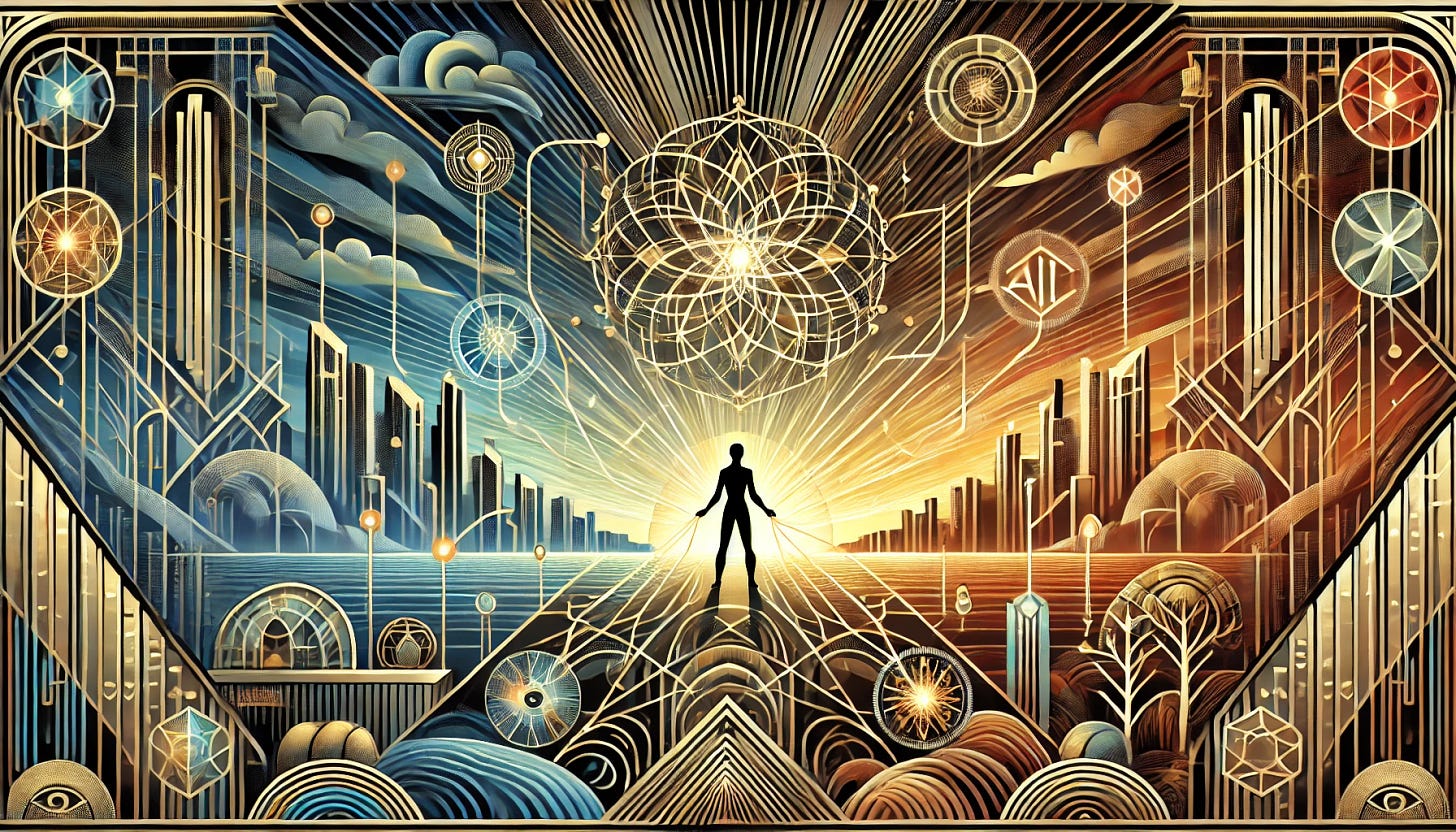Here we go again. I recently read this clickbait article from MIT, “Drawing a line from colonialism to artificial intelligence” and had a couple of thoughts: So, Simon Johnson has this idea that artificial intelligence (AI) is like a digital reincarnation of colonialism—a shiny, tech version of colonialism?. His argument, according to the article is that AI, like colonialism and the Industrial Revolution, is just another way to concentrate power in the hands of the few.
But hang on. Before we all start hoisting AI up on a mast with a Jolly Roger flag, let’s take a step back. His analogy might be, well, a bit too neat. Comparing industrial-era GDP to AI-era GDP is a mistake because it doesn't account for the differences in how value is created and distributed in the two periods. And focusing solely on GDP per capita ignores other important aspects of economic development, like access to education, which exploded with the internet.
1. Comparing AI to Colonialism is Like Comparing a Smartphone to a Wooden Ship
Colonialism involved literal ships, muskets, and a whole lot of very messy geography. AI, on the other hand, is digital. It doesn’t care about borders, oceans, or whether your empire is British or Klingon. Unlike colonialism, or even the Industrial Revolution, AI’s power is in its code—it’s not locked into physical spaces or resources, though, yes, a lot of infrastructure and energy is required to run it…
But, for example, countries like India and Kenya are showing that AI isn’t just a game for the big kids. They’re using AI for things like better healthcare diagnostics and smarter farming. It’s not about who has the biggest navy anymore—it’s about who has access to education, electricity, and Wi-Fi.
2. AI Might Be More Robin Hood Than Evil Empire
Johnson says AI could end up in the hands of elites, hoarding power like a dragon sitting on a digital treasure trove. But here’s the twist: AI also has a collaborative, open-source side.
Imagine this: researchers from a dozen countries working together to create AI tools for everyone. Take Google’s TensorFlow—it’s free for anyone to use, meaning small startups or even students in a developing country can play the same AI game as the Silicon Valley giants.
And let’s talk money. PwC predicts AI could add $15.7 trillion to the global economy by 2030. Fun fact: nearly half of that is expected to go to emerging markets. Translation? AI isn’t necessarily exclusive—it’s actually inclusive.
3. "Historical Determinism" is Just a Fancy Way of Saying "Blaming the Past Too Much"
Yes, history matters. But modern societies aren’t just playing out some colonial hangover. Countries like South Korea and Singapore were not handed a golden ticket—they built their success through smart decisions on education, governance, and tech investment.
Now, look at Rwanda. They’re using AI-powered drones to deliver medical supplies to remote areas. That’s not colonialism 2.0—that’s ingenuity. AI gives countries with less industrial baggage a chance to jump right into the future.
4. Automation Doesn’t Just Kill Jobs—It Makes Weird New Ones
Here’s where Johnson sounds the alarms: “AI will take jobs! People will starve! Chaos will reign!” Okay, sure—automation can be scary. But let’s not ignore history. When machines took over farming, people didn’t just sit around crying over their plows. They moved to factories. And when factories became robots, people moved into services.
AI is already creating jobs that didn’t even exist 20 years ago. Plus, AI isn’t just about cushy, tech office jobs. It’s making farming more efficient, helping manufacturers produce more stuff with fewer resources, and even assisting artists and writers.
5. AI Can Fight Inequality, Not Just Cause It
Instead of thinking of AI as some evil overlord, let’s think of it as a Swiss Army knife. Sure, you could stab someone with it. But you could also open a can of beans, file your nails, or fix a wobbly table.
6. Inequality Isn’t a Robot Problem. It’s a People Problem.
If AI is used to exacerbate inequality, that’s not AI’s fault—it’s ours. Policies, education, taxes, and labor protections, along with regulatory capture decide how the pie gets sliced. Nordic countries are a great example: they’ve embraced automation but still maintain some of the lowest inequality rates on Earth.
Parting Thought
Focusing only on the potential downsides is like complaining that electricity is dangerous because it can cause fires. True, but it also powers hospitals, schools, and, you know, Netflix.
Instead of framing AI as a new colonialism, (I’m sure that will get you a few clicks) we should focus on making sure it’s a force for good: more open collaboration and smart investments in education and infrastructure. At the end of the day, AI isn’t evil—it’s just a tool.



